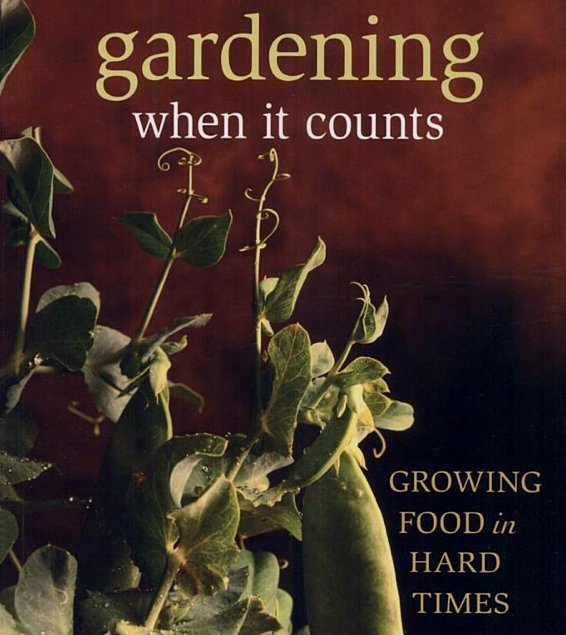For the past two years, I’ve been gardening in raised beds. Now that I have a deer fence and have prepared a real garden area, I can move beyond raised beds and do old-fashioned in-the-dirt gardening. But one of the things that shocked me while gardening in raised beds was the huge amount of watering required.
How can it be, I wondered, that my grandparents raised huge, productive gardens without any irrigation? One of my grandfathers grew enormous, juicy watermelons year after year, rain or drought. This is a mystery that I’ve wanted to understand.
In Gardening When It Counts: Growing Food in Hard Times, Steve Solomon emphasizes the importance of being water-frugal and not relying on irrigation. He is not a fan of “intensive” gardening methods like raised beds, which require regular watering and extremely rich soil. The key, he says, is to garden the old-fashioned way: Plant things far apart. When plants are too close together, he says, they compete for water and draw huge amounts of water from the soil. The water drawn out by the plants’ roots, he says, greatly exceeds water lost to evaporation.
Solomon also tells us how surprisingly large the root systems of garden vegetables are. Canteloupe roots, for example, will go two feet deep and reach out 10 feet in all directions from the spot the seed was planted. A tomato will go four feet deep and four feet outward in all directions. That is huge! And, at four feet deep, a lot of moisture can be found, even in dry weather.
So, when I plant this year’s garden, I’m going to give everything lots of space.
Solomon’s book is concise, logically organized, and dense with information. It has answered a lot of my questions. For example, why is leaf compost not ideal, and what is needed to compensate for its deficiencies?
I think this is the single most important book on organic gardening that I’ve come across.

